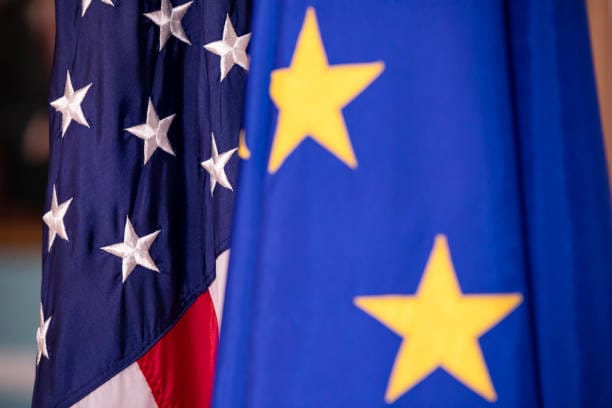Many European countries, particularly France, have expressed frustration over the newly announced U.S//E.U. trade deal, which they view as being lopsided in favor of the U.S. But many questions remain about how the benefits and costs will be sorted out in the end.
What’s clear is that consumers on both sides of the Atlantic will pay a steep price, as a 10 to 15% tax is being imposed on imports of many goods, including automobiles and pharmaceuticals. Agreement on alcohol was left for further negotiations.
European negotiators have justified the deal as being the best that could be achieved, arguing that a trade war, which would have been devastating for the already ailing European economy, was the alternative. The Europeans also expressed concern about what a trade war would mean for continued cooperation in support of Ukraine, although this issue was not explicitly addressed in the trade deal.
What will be interesting to see is whether the Europeans have a plan to ultimately prevail in managing the trade deal, or at least mitigate the negative consequences to their exporters. Some economists have predicted that the deal will provide an incentive for the European Central Bank to prop up the dollar relative to the euro, thereby making goods exported to the U.S. relatively cheaper, and offsetting the increased price pressure from the tariffs. Other countries who have struck similar trade deals with the U.S. might follow suit. If this occurs, there may not be a significant drop in E.U. exports to the U.S., or a significant increase in U.S. exports to the E.U., and Trump’s goal of reducing the U.S.’s trade deficit will not come about as a result of his tariffs.
The Europeans might be holding out hope that the negative consequences of the tariffs on American consumers might force Trump to return to the negotiating table to reduce the tariff rates. They also might have calculated that they can swallow the bitter tariff pill until Trump is out of office and they can deal more reasonably with someone else. The problem with this strategy, however, is that the U.S. government (including Democrats) might come to rely on the revenue generated by the tariffs. Given the huge U.S. budget deficit, exacerbated by Trump’s big beautiful bill, the tariffs might end up being essential for the U.S. to keep its debt from crashing its economy. The debt problem is unlikely to be effectively addressed without tax increases. But, at present, tariffs appear to be the only taxes that Republicans are willing to increase, even though most of them refuse to admit that they are, in fact, taxes on Americans.

Member discussion: